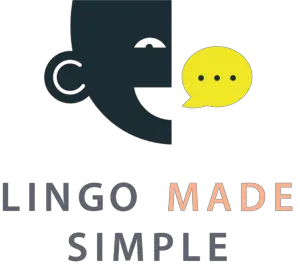The word “worth” is defined as an adjective that “is equivalent in value to the sum or an item specified” in the sentence or paragraph.
When you say that a house is worth $350,000, you’re using it as a descriptor to discuss how much value that property has to buyers and sellers.
“Worth” is also usable as a noun when it is the value equivalent of something under consideration.
You could say that it is necessary to review each property for sale to judge its worth.
That’s why it can be confusing to use this term in some sentences. Would you say “it worths it”? Would it be better to say, “it worth it?”
“It Worths It”, “It Worth It,” or “It Is Worth It?”
“Worth it” in the English language is an obsolete verb. Unless it gets used to describe something of direct value (which makes it an adjective), it cannot stand alone. That’s why “It is worth it” is the appropriate usage of this term. “Worths” and “Worth” modified by “it” is not a specific action.
The issue that we’re talking about here involves whether an adjective can become a verb. We know how fun it can be to turn nouns into verbs to create new descriptions, but can modifiers be swapped the same way?
First, let’s take a closer look at the idea of swapping random nouns into sentences to cause them to become verbs.
“Sally Tyrannosaurus Rexed around the house all day because she felt hungry.”
“Bob Pragued that pasta hard.”
“Bill soccered his shoes right back to the shelf.”
“Amelia potatoed that jump on the treadmill, and it mashed her.”
Although the sentences aren’t 100% perfect when swapping verbs for nouns, you can still get an idea of what is happening. The concept isn’t entirely awkward.
When you try to do the same thing for an adjective, the sentences don’t have the same smoothness.
“Sally beautifuls around the house all day because she feels sad.”
“Bob sads into his pasta because he feels lonely.”
“Bill joys his shoes right back to the shelf.”
“Amelia worths the jump on the treadmill, and it embraced her back.”
Even when changing sentence structures or phrasing, the push to move adjectives into verb form isn’t as effective as it is with nouns.
When you use nouns instead of verbs, it isn’t as accurate to the reader as a description that tells the subject’s exact action.
Although Sally “Tyrannosaurus Rexed” because she was hungry, what exactly did she do? Did she “prowl” around the house all day, “wander” into the backyard to find something, or “raid” the snacks in the pantry?
We just don’t know. That’s why precision is the focus of the English language. Nouns, verbs, and adjectives can get moved around for fun, but they are given a specific purpose when writing or speaking in all but the most informal of settings.
Why Is It Inappropriate to Pluralize Worth?
Although most nouns can be plural, worth is one of the unusual ones that does not meet that standard.
That’s why it is rare to use the noun “worth” in plural form. It can only receive the “s” for pluralization in very specific contexts.
You could say that there are “various types of worths” to consider, but even then, the sentence would be better if it said, “various worth types.”
Another option would be to say that you’re evaluating a “collection of worths.” Although this choice is technically correct, it might be better to say that you have “worth collections.”
That means “it worths it” is inappropriate in any context. Although it might be fun to say as slang, it doesn’t have a place in formal writing whatsoever.
Any verb that doesn’t create multiple versions of itself is inappropriate to pluralize. Some additional examples that join “worth” are “sheep,” “moose,” and “shrimp.” If you want to indicate more than one, you’d modify the verb instead by following the “is vs. are” rule.
◼️ What About Saying “It Worth it?”
The issue with the phrase “it worth it” involves how sentences must get structured in the English language.
This specific expression is either three consecutive nouns that form a string or a noun-adjective-noun combination.
When you describe direct concepts, another word must be in there to make the expression complete. You’d want to say, “It is worth it” or use the contraction form of “It’s worth it,” to complete the thought.
The word “is” describes the action of “combining form.” It can be isomeric, equal, homogenous, uniform, or act as a grouping mechanism.
“Is” comes from the Old High German language term “ist,” which also means “to be.” This word might have been taken from Greek or Latin even earlier.
That’s why the final option out of “it worths it,” “it worth it,” or “it is worth it” is the most appropriate one to use. By including “is” in the statement, you’re giving the action of “being” to the thought.
Slang Can Make Things Seem Appropriate When They Are Not
Slang is a language type that uses phrases and words that are very informal. It’s more common to see these inclusions in speech than writing, and it’s typically used in a specific context, with a group of people, or a particular setting.
If someone got told that a candy bar was $2.75, they might think it is expensive – but they’d still want it. If they said, “it worth it,” you’d know what the expression meant. It would be more appropriate to say “it is worth it” in a formal setting, but the informal one accepts the term without hesitation.
As for “it worths it,” the term is inappropriate because there is no pluralization reference.
Although it isn’t always easy to remember if, when, or how nouns pluralize, you can look at how you’d describe multiple items of the same thing. If that action doesn’t make sense to do, the term should be avoided.

